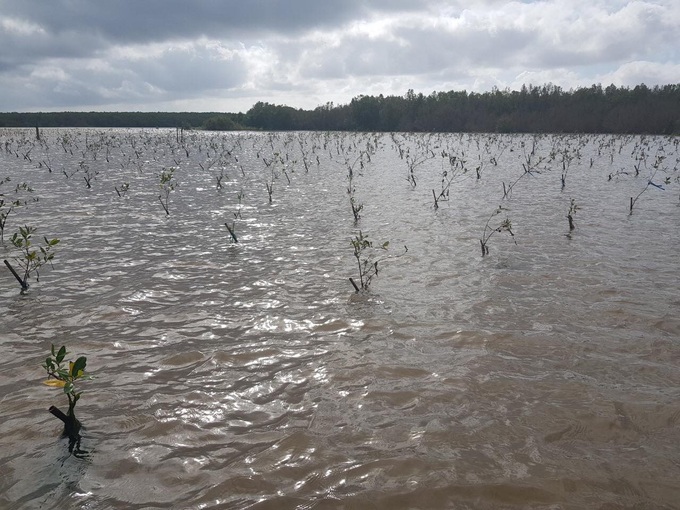
HSBC Vietnam Bank will provide VND10bn (USD430,000) to revive a mangrove forest in Mui Ca Mau National Park
HSBC's recent report states that for Asia, climate change is the crisis of the century and Vietnam is one of the most affected countries. Besides Mumbai, Shanghai, Bangkok and Jakarta, HCM City is among the most threatened cities by rising sea levels.
UN Food and Agriculture Organisation and HSBC Vietnam statistics show that damage to the agriculture in Vietnam will become more severe. Asia is not just a victim of climate change, it is also speeding up climate change. 87% of the greenhouse gas were from Asia and the amount of CO2 in Asia increased by 78% since 1990. Deforestation is one of the main causes for the higher emissions in Southeast Asia.
HSBC and WWF Vietnam will work together to build a programme to nurture the vulnerable ecosystem in Ca Mau, Mekong Delta and other regions. The goal is to help Vietnam reduce 8% of the greenhouse gas in 2030 and increase the forest cover to 45% nationwide.
150ha of forest land will be developed by regenerating mangrove forests. After maturing, this forest will be able to store 20,000 tonnes of carbon annually and protect the Mekong Delta from natural disasters. 10,000 households will also be protected and the productivity at fish farms will be able to rise to 350-390 tonnes a year. The education programme about biodiversity conservation will be promoted to 3,000 households living in the national park.
Van Ngoc Tinh, director of WWF Vietnam said, "HSBC and WWF Vietnam will continue to tighten co-operation this year. Our co-operation has helped further expanded HSBC’s water preservation programme and brought clean water to over 2.5 million people in five river basins across the world."
The recovery strategies, investments, and decisions of the collaboration programmes will focus on solutions to deal with the environmental crisis in general and to reverse the loss of biodiversity by 2030, and secure sustainable development for Vietnam.
The activity is part of HSBC's pledge to spend USD100m for climate and renewable energy projects worldwide in the next five years.
